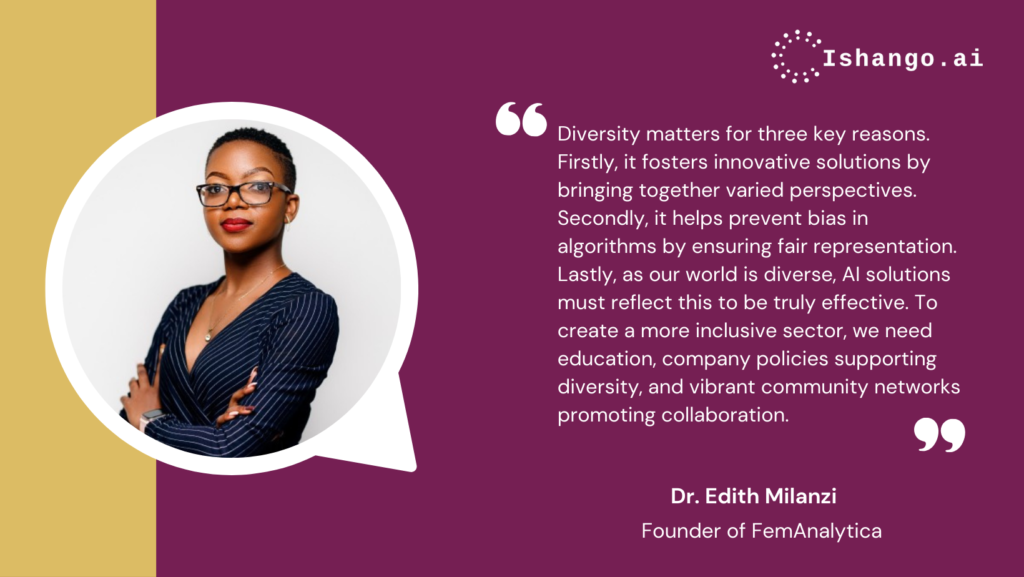Dr. Edith Milanzi’s Insights on Diversity and Inclusion in Data Science Sectors

1. Please introduce yourself, what you do, and your current role.
My name is Dr. Edith Milanzi, and I wear multiple hats in the world of data. As a medical statistician and a health data scientist, I analyse and interpret health-related data to uncover insights that can drive better healthcare outcomes. Beyond that, I am also the founder of FemAnalytica, a data science lab based in Malawi whose mission is to provide data science solutions to the social sector, democratise data skills, and empower women in data science. I am also the Malawian ambassador for Women in Data Science Worldwide.
2. What inspired you to pursue a career in AI and data science, and what continues to motivate you in this field today?
Since my undergraduate days, I have built my career around data. The evolving landscape of data sparked my transition into AI and data science. New technologies and tools have emerged, fueling my passion for using these tools for social good and how we can incorporate traditional statistical methods to create innovative ways of understanding data. The ability to extract knowledge from data fascinates me, and I saw immense potential in using data-driven approaches to address real-world challenges. What continues to motivate me today is the impact we can create. Whether it’s improving healthcare delivery, optimising resource allocation, or driving social change, data science allows us to make a difference.
3. Who have been your role models, and how have they played a role in getting you to where you are today?
My sister has been my unwavering role model and mentor. Her resilience, intelligence, and dedication have shaped my path. She showed me that barriers can be overcome with determination and hard work. Additionally, I draw inspiration from Joy Buolamwini, an incredible advocate for algorithmic fairness. Joy’s work on bias in facial recognition systems opened my eyes to the importance of diversity and ethical considerations in AI. She reminds us that technology should serve everyone, not perpetuate inequalities.
4. Why do you think diversity is crucial for the AI and data science sectors? What needs to happen for the sector to become more inclusive?
Diversity is crucial for several reasons. First, diverse perspectives lead to innovative solutions. When people from different backgrounds collaborate, they bring unique views that enhance problem-solving. Second, ensuring fairness and avoiding bias requires diverse teams. Without representation, algorithms may inadvertently discriminate. And lastly, our world is diverse, and AI solutions must reflect that diversity to be effective. To make the sector more inclusive, we need education, company policies promoting diversity, and strong community networks celebrating and promoting collaboration.
